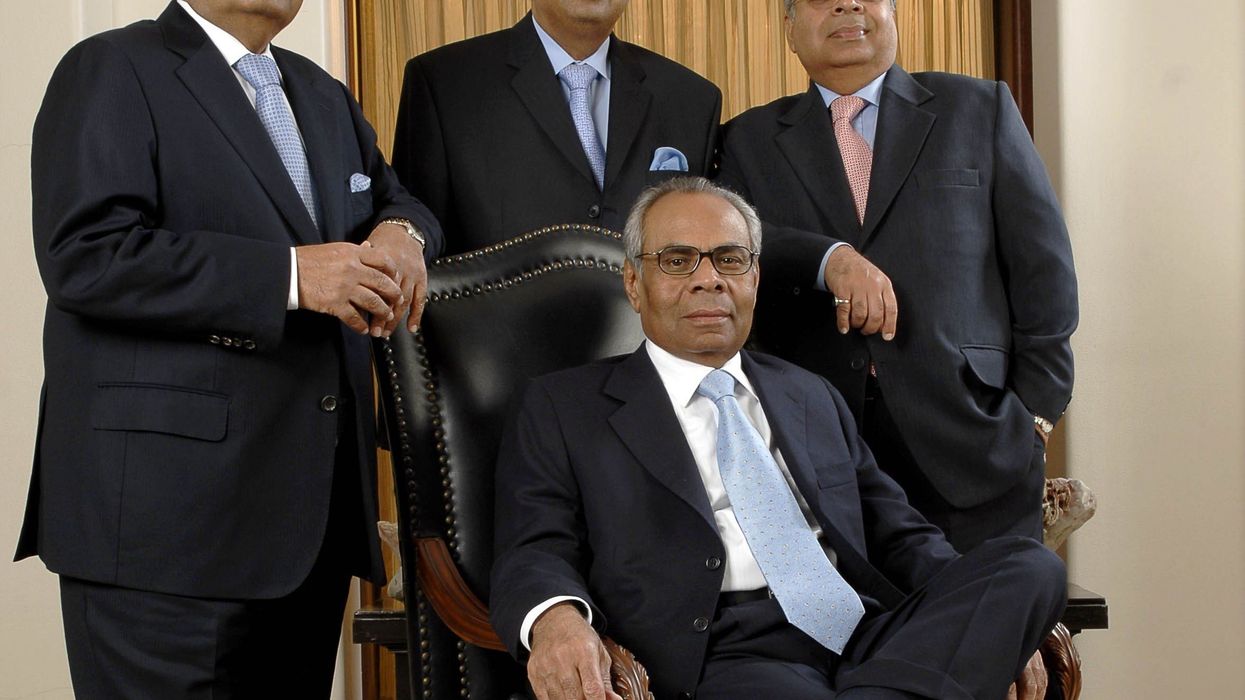What was Srichand Parmanand Hinduja – “SP” to everyone – really like?
I will miss our walks in St James’s Park, which were invariably at dawn. He walked briskly, much faster than someone half his age.
More than 10 years ago, he decided to tell me his life story.
At his Carlton House Terrace apartment, we had some 30 sessions, each lasting between two and three hours. Looking back on his life, I can say he was a really good human being. And he was remarkably unassuming, humble and modest. When he was a bit gruff, it was an Indian way of showing affection. The doors of his home were open to everyone.
Chatting to him, you would never guess he headed the richest family in the land, worth £30.5 billion according to Eastern Eye’s Asian Rich List 2023.
Of SP it can truly be said, he walked with kings – literally, in his case, as he befriended Mohammad Reza Pahlavi, the last Shah of Iran – but never lost the common touch.
I talked to him when he was at his vulnerable after the tragic death of his only son, Dharam, in 1992. I saw him in Cambridge where he happily posed with a bike. In Bombay (now Mumbai) I walked with him along the beach in Juhu where the Hindujas have a home. Among the flowers and the well-watered lawn, he relaxed in a hammock. And I saw him in Cannes during many a film festival where he would take off in his yacht, Param Jamuna, named after his parents.
Sometimes, I thought he was embroidering his tales. He told me Princess Diana had “come home for dinner”. On another occasion, SP said he had taken Michael Jackson (of Thriller fame) to a Hindu temple in London and then brought the singer home for a vegetarian meal which the American star had relished. Later, SP showed me the photographs and a thank you note from Diana.
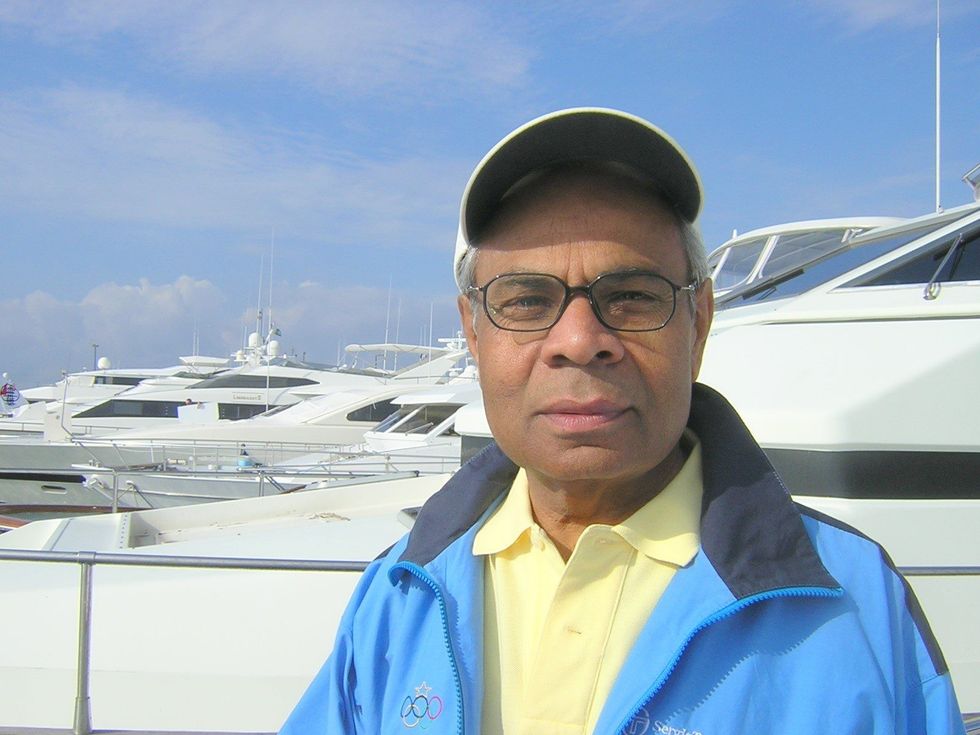
As possibly the leading Indian pioneer in the business world, he always believed in family unity. He once confided that Dhirubhai Ambani had sought his advice about the growing differences between his sons, Mukesh and Anil, which surfaced publicly after their father’s death.
It remains to be seen how the differences between SP’s daughters, Shanu and Vinoo, and their uncles, over the interpretation of the family creed – “Everything belongs to everyone and nothing belongs to anyone” – will be resolved.
Before he fell ill a few years ago with “Lewy Body disease, a form of dementia” (as a judge stated in court), SP believed there should be daily contact between him and his younger brothers, Gopi, Prakash and Ashok, and that there should be no secrets among family members.
Some of that modus operandi has percolated down to the third and fourth generations. With SP ill, Gopi has presided over the business empire for several years, anyway, so there is no reason to think the show won’t carry on as in the past.
Although SP’s observations sometimes came across as eccentric, they made sense if you tried to understand the meaning behind his words. In St James’s Park, he and Gopi would be recognised by thousands of birds. But it wasn’t a scene from Hitchcock’s The Birds. It is just that SP and Gopi arrived with a large paper bag stuffed with bird food.
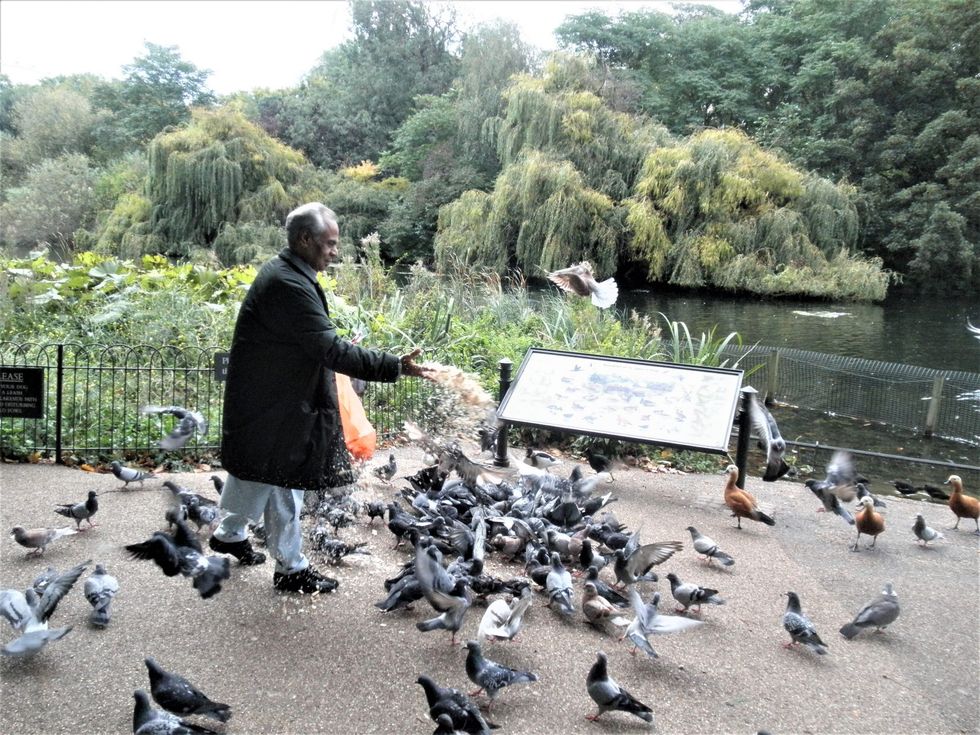
SP told me he had learned about investment banking from squirrels: “If you give two nuts to a squirrel, it will eat one and bury the other one for a rainy day – it is never greedy.” Certainly, I witnessed the same squirrels returning tamely to SP’s outstretched hand for seconds. “Nature is my teacher,” he remarked.
When Concorde began flying Heathrow-New York, SP would take extra portions of vegetarian food. When other tycoons protested to the air stewardess, “I don’t want lobster thermidor, I want what he’s having,” SP would share his food, “Please take,” and also casually pass on his contact details.
The Hindujas moved their international headquarters from Teheran to London after the Iran Revolution of 1979. But SP showed consummate diplomatic skill in retaining cordial relations with Islamic world.
Now, the roots in London, where the Hindujas have apartments and a mansion in Carlton House Terrace, are deep.
“At Dharam’s request, I had been considering shifting my base to Canada,” said SP. “We chose London after studying the tax structure in America and also from the point of view of time zones, London is best for a global operation.”
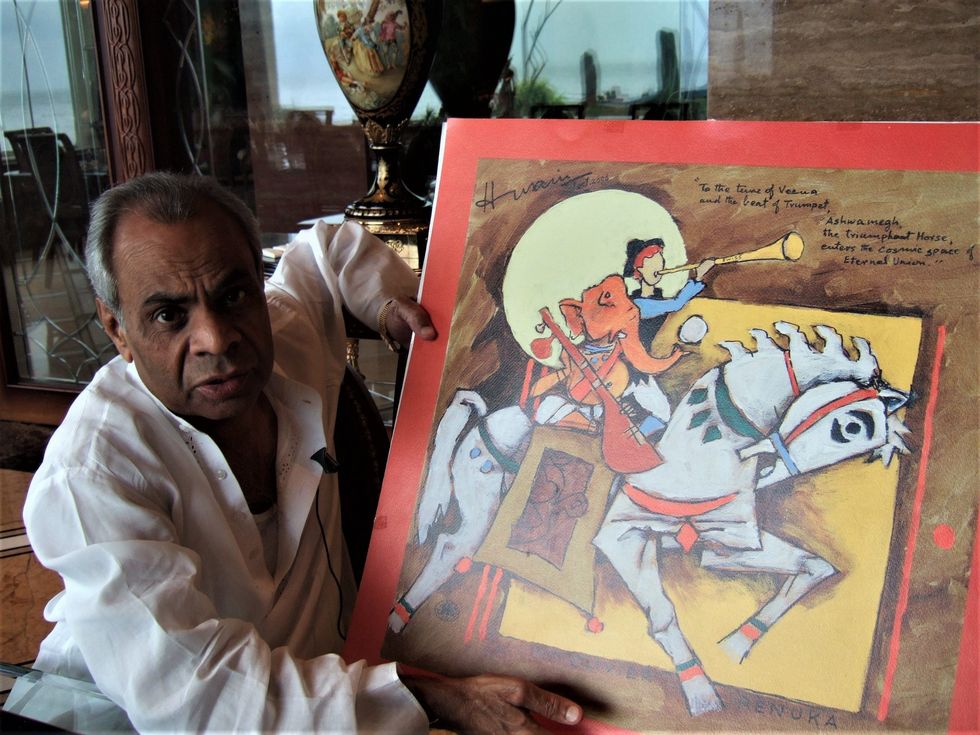
It is apparent that SP tried to pass on the principles he inherited from his father, notably “Work to give,” and “Think local, act global”.
“My father laid down a principle – he would never default (‘my word is my bond’),” said SP. “And to this day, the Hindujas have never defaulted.”
SP’s father, Parmanand Deepchand Hinduja, was born in Shikarpur in Sindh, now in in Pakistan, on November 25, 1901.
In 1914 his father moved to Bombay to begin a business which developed over the course of more than a century.
SP, too, was born in Shikarpur on November 28, 1935. He told me of his childhood and how the family business began: “The name Hinduja was originally Sindhuja, meaning by the banks of the River Sindhu, but later Sindhuja became Hinduja.
My forefathers were traders and moneychangers – they were involved in what we today call counter trade and merchant banking. They bought and sold products and dealt with Afghanistan, Iran, the Arab world, even as far away as Brussels. In those days, people travelled on donkeys, camels, horses, ponies and crossed stretches of water by country craft.”
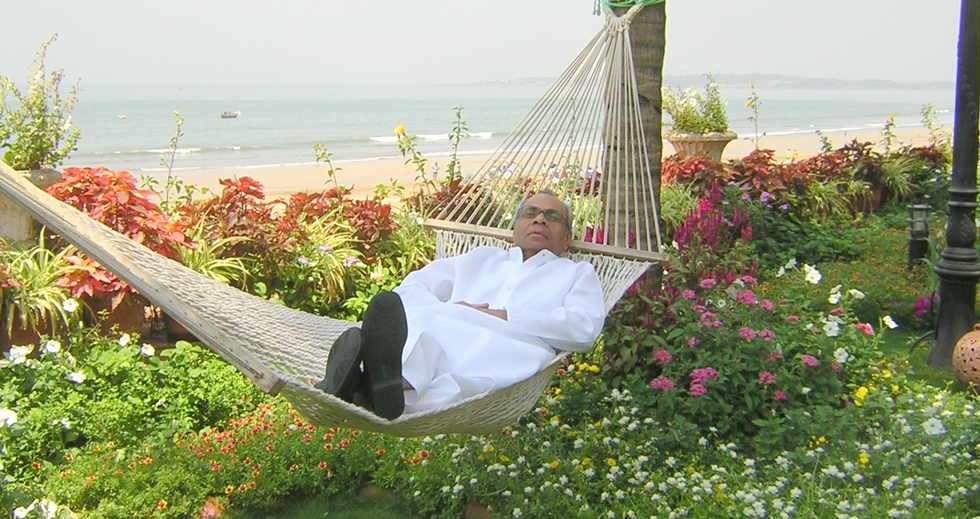
When Parmanand was only nine, he lost his father, Gangaram. Parmanand “realised that in order to expand his business, he would have to move to the centre of commerce, Bombay, which he did at 14. He knew some English, Sindhi, and also a coded business language known as Hattai. In Bombay, he trained under his maternal uncle. Basically, the business was to do with exporting textiles, spices, jute and tea, and importing cumin seeds and dry fruits.”
The links to Iran go back many years. “Just after the First World War, which was a period of recession, when my father had purchased 500 bales of cotton, he faced possible bankruptcy and defaulting. He overcame this challenge by taking his business as far as Baghdad, Basra, Khorramshahr, Bandar Abbas and Ahvaz.”
SP said: “In 1938-39, when Reza Khan, the father of the Shah, was ruling Iran, my father overheard that the English (who were effectively in charge), would make it compulsory for men of officer status to wear hats. My father asked his brother in Bombay to buy up all the hats. No sooner had hats become the law, he was the first man to sell hats.”
SP had an elder brother, Girdhar, who died prematurely from food poisoning. Other siblings arrived – Gopi (1941), Prakash (1945) and Ashok (1950). Twin girls were born in 1924, then Shanti in 1926, Sushila in 1932 and Shoba in 1947. “My father died in 1971, my mother in 1973.”
SP recalled: “The elders taught me practical mathematics, ‘Ok, if for four pice you get four oranges, for 20 oranges how much would you pay?’ One had to answer on the spot. To this day, I don’t use a calculator.
Another lesson was never to profiteer. Never ditch loyal buyers in one place because you can make a higher profit in another.
“We were taught to swim in the Sindhu River with upturned earthenware pots, each filled with about a dozen mangoes. When we left Shikarpur, we left buried gold and treasure which is still there. We could not reach agreement with (Pakistan’s military ruler) General Zia ul-Haq on their recovery and distribution.”
He told me: "I entered my family business at 17, the age at which my brothers were also brought in. My father took me to market and taught me how to buy fresh vegetables.”
SP also spoke about his marriage to Madhu, who died in January this year at the age of 82 - they had been married for 60 years.
“When my eldest brother Girdhar died, he received the first Hindu funeral in Teheran. This required special permission. The only way I could ensure that my sister-in-law would continue to be accepted by the family and by my wife would be to marry someone close to her – in 1963 I married her sister Madhu.”
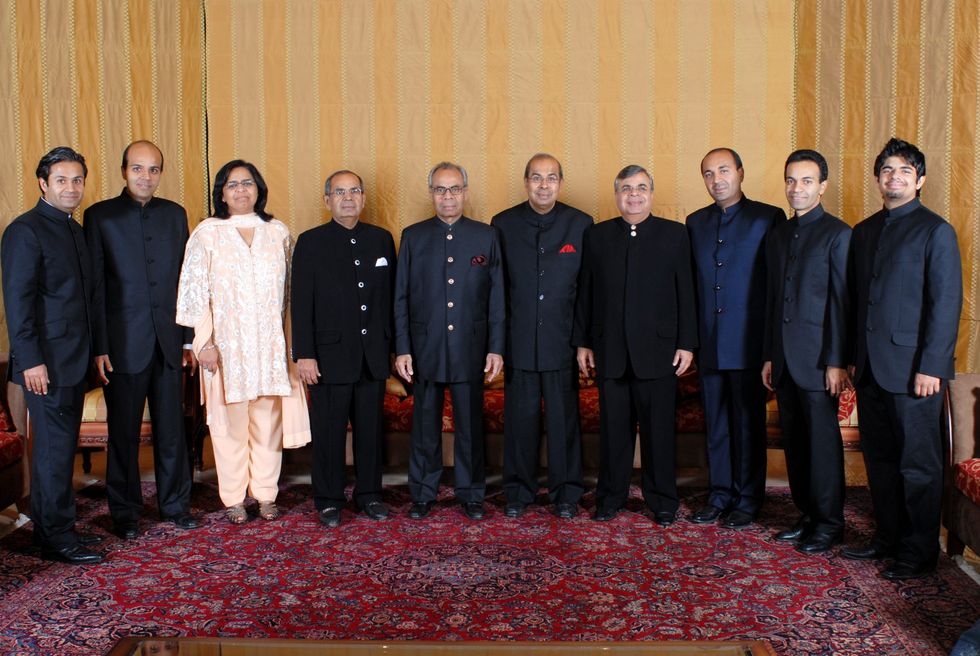
He had a number of eccentricities. The family have homes in many cities (London, Mumbai, Kolkata, Delhi, Chennai, Paris, Cannes, New York and Geneva) but he would stay in hotels only if there really was no alternative.
“Sometimes, my wife protests, ‘Do you really have to take your own sheets and pillows and cutlery?’” SP laughed. “In hotels you have prostitutes going in and out.”
He also indicated he was old-fashioned when it came to bringing daughters into the business. He preferred “sons only” because a son-in-law could never be part of the inner circle.
The business now takes in a dozen “verticals” from banking to oil, real estate, health, defence and the automotive sector.
“Before buying something we study the situation and get all the information (ie “due diligence”). Then when we move, we strike like lightning, and no one can stop us.”
The third generation, Gopi’s sons, Sanjay and Dheeraj, Prakash’s Ajay and Ramkrishan (“Remi”), and Ashok’s Shom, run their respective sectors with guidance from their elders.
The latest project is the luxury Raffles hotel and residential complex in Whitehall, a conversion from the Old War Office.
SP said the Partition of India “was the biggest mistake. How can you cut one country into pieces? Till today we are suffering.”
“The only thing we brought out at Partition was the horse which knew each and every family member. He lived till 17.”
